Tech revolution in Healthcare: In the healthcare industry, digital transformation is generating enormous improvement and innovation.
Healthcare organizations may improve worker experience, improve patient care, and enable better and faster diagnosis by implementing advanced technology solutions.
Healthcare organizations may gain the agility they need to streamline operational procedures while lowering costs by embracing digital transformation.
Furthermore, using digital technology to collect and analyze data will aid in understanding the demands and habits of target users.
As a result, healthcare practitioners will be able to devise innovative tactics to add value and foster user loyalty and trust.
In this article, we’ll look at how the healthcare ecosystem is changing and how to make use of the benefits of digital healthcare in a practical approach.
We’ll start by looking at the process of creating a digital healthcare roadmap, the factors that are shaping this movement, and the hazards that come with comprehensive digitization.
Tech revolution in Healthcare – What is Healthcare’s Digital Transformation?
The term “digital transformation” in the healthcare business refers to how a company leverages technology and digital solutions to improve the patient experience.
Streamline operations, and make on-demand medical care more accessible and affordable.
In the healthcare industry, technological innovations such as electronic health records, online appointments, and telemedicine.
And AI-powered medical gadgets are all examples of digitalization.
These technologies have completely transformed how patients connect with health professionals, how their information is shared among suppliers, and how treatment options are chosen.
Chronic diseases are becoming more prevalent
Chronic diseases are putting a growing strain on healthcare systems around the world.
More than 500 million individuals worldwide suffer from respiratory ailments, 400 million from diabetes, and 1.1 billion adults suffer from hypertension.
These figures are expected to rise in the coming years as the population ages.
There is a staffing deficit in the healthcare industry
Healthcare providers in various regions of the world are experiencing workforce shortages as demand for care rises.
According to the WHO, there will be a global shortage of 12.9 million competent healthcare personnel by 2035.
According to a Medscape poll from 2021, 42% of healthcare providers are burnt out, with the Covid-19 pandemic contributing to the stress for many.
As a result, it is more crucial than ever to safeguard the emotional and physical health of healthcare personnel.
Digital solutions can aid in the automation of mundane tasks and the simplification of workflows.
The Healthcare Industry’s Five-Step Innovation Process
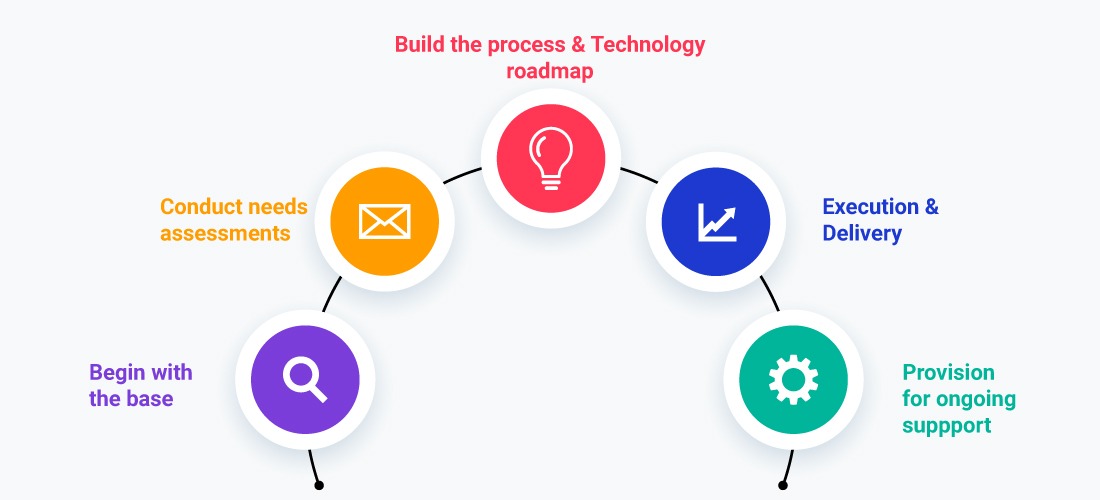
We’ll learn about the five actions hospital systems can take to improve their clinical capabilities, adapt to today’s growing healthcare concerns, and attract both healthcare providers and patients in this section.
So, let’s get started!
Start with the basics
Investigate what you already have, such as legacy systems, patient engagement tools, real-time location systems, EHRs, telemetry, and so on.
Examine what is working for you and what could be improved after you get the data.
Conduct needs assessments – Tech revolution in Healthcare
After you’ve gathered all of the data, work with the design team to prioritize each department’s wish lists while staying under budget.
Consider the metrics, such as HCAHPS scores, ROI, and patient and staff safety satisfaction.
Finally, decide how you’ll employ technology to achieve your key performance indicators.
The Healthcare Industry’s Top Digital Transformation Trends
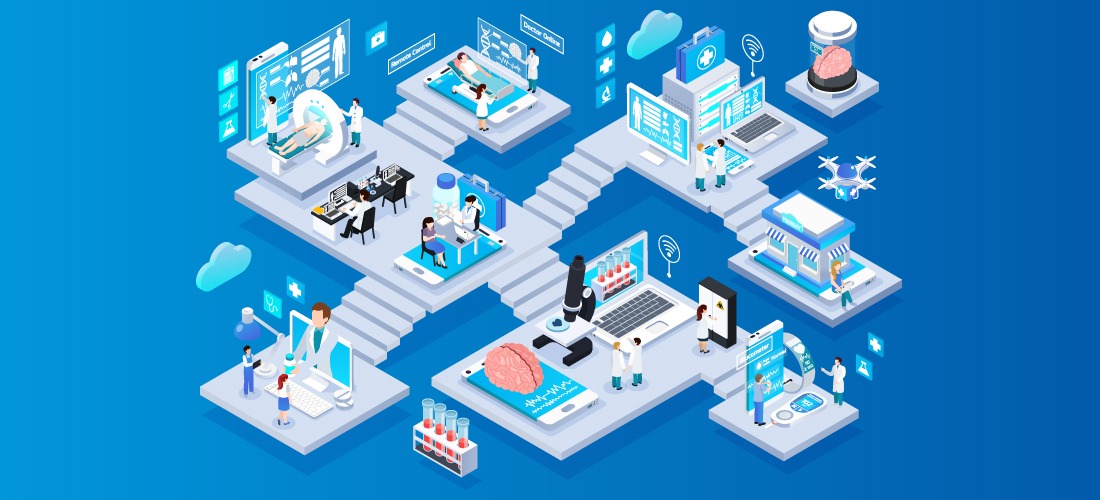
Many people believe that technology and innovation are the driving forces behind advancements in healthcare services, and when you consider the rate of change and recent developments, it’s difficult not to agree.
Digital technology has already revolutionized the practice of medicine and represents the future of the healthcare business.
They have significantly increased operational effectiveness in terms of medical consideration criteria.
Both medical professionals and patients have reported a significant improvement in their overall experience as a result of the shift.
Some of the digital transformation health services themes that have emerged as a result of increased technology use by digital health companies and institutions are listed below.
1. On-demand medical attention
Patients have begun to desire on-demand healthcare, pushed by the convenience of their smartphones, and the healthcare mobile app development domain is entering the digital innovation era.
This isn’t only a user-centric trend. Physicians can also provide on-demand healthcare services to patients based on their knowledge and availability, thanks to companies like Nomad Health.
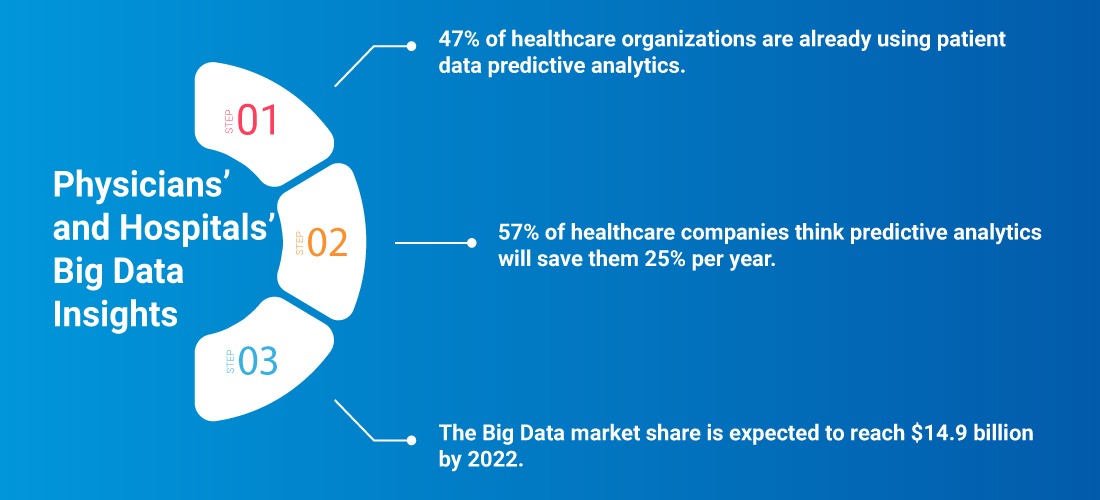
2. Big data
Every hour, the global healthcare business processes millions of records.
Big data will help the digital healthcare business grow quickly. With its ability to transform unstructured and organized data into useful outputs, big data can provide a slew of advantages.
3. Virtual reality
Virtual reality has evolved into a critical component of the digital healthcare ecosystem.
Virtual Reality virtual reality has been regarded as beneficial in treating patients with chronic pain in countries that have been battling the risks of the drug crisis.
The technology is being utilized to treat PTSD, stress, and stroke in addition to chronic pain.
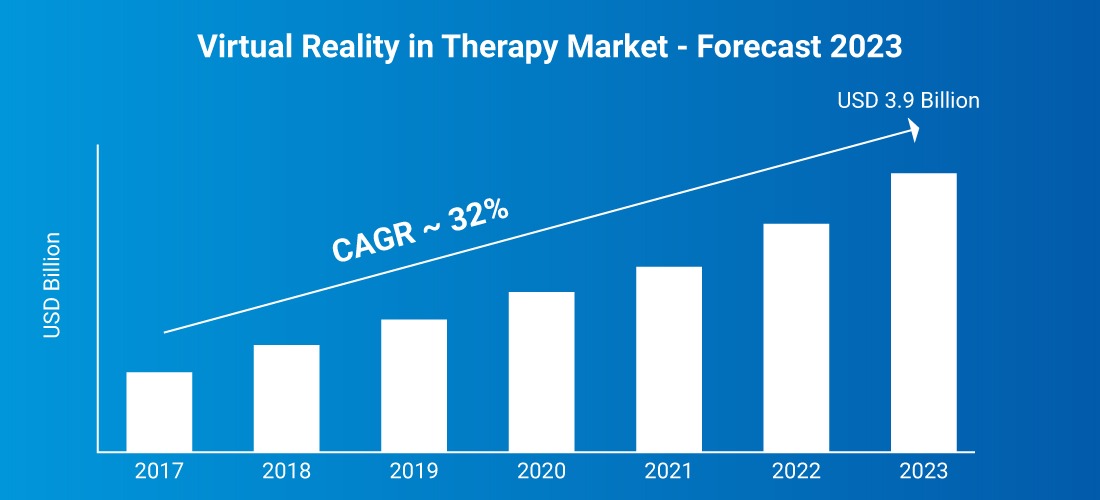
4. Internet of Things in Medicine
Medical IoT is fast developing, even though IoT deployment in the healthcare sector has been delayed for a long time.
While the medical IoT may appear to be complicated and feature a wide range of solutions, use cases may be constructed around a few key tasks, ranging from simple tracking to elaborate automation.
5. Voice recognition software
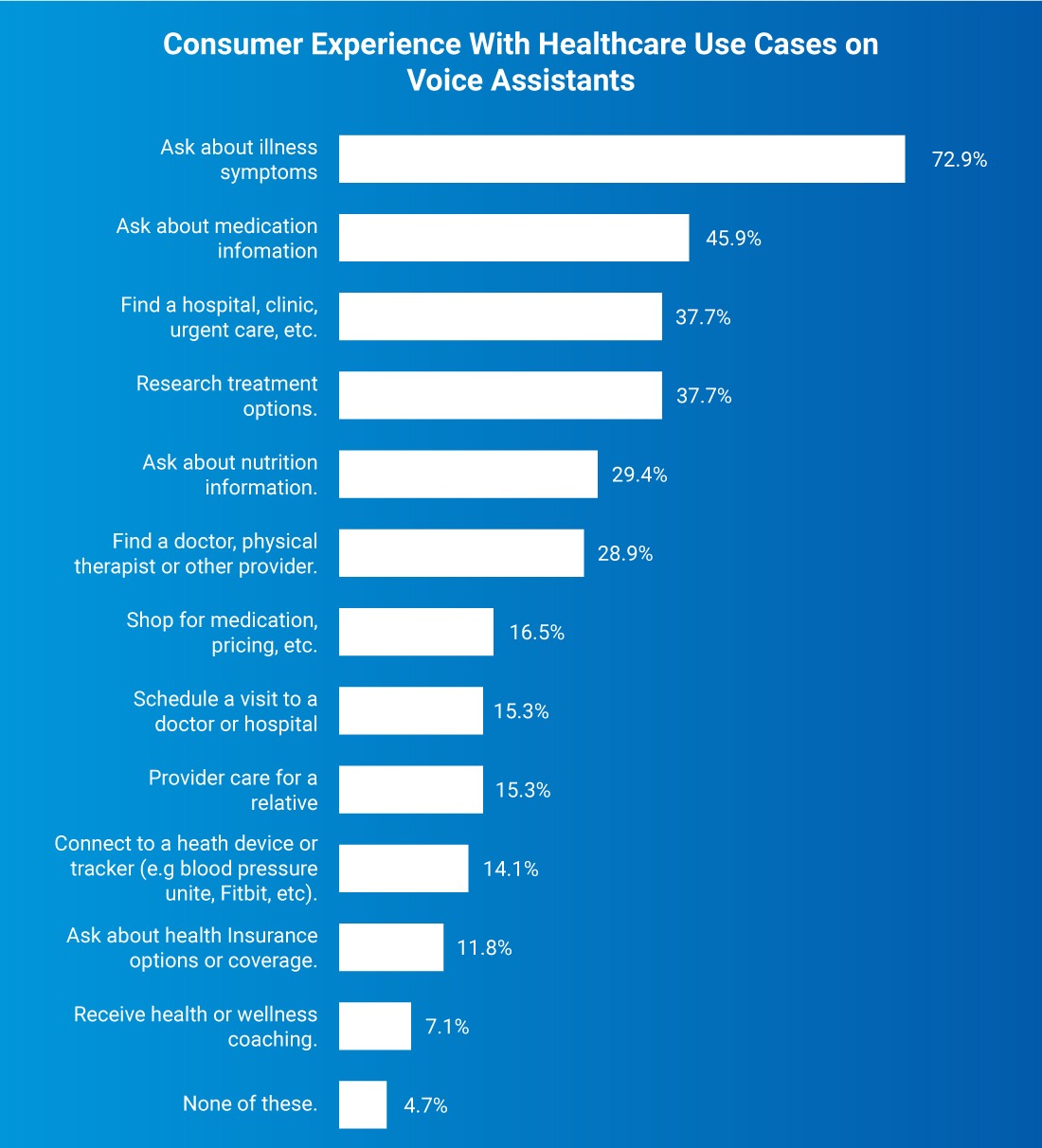
All innovations aimed at lowering physician workload are sure to attract a lot of attention in the future years. One of these healthcare software development technologies is voice technology.
It can reduce the workload of physicians by handling routine administrative chores.
Conclusion
The goal of the Tech revolution in Healthcare was to walk you through the digitization process while also emphasizing that change will not occur solely as a result of technological advancements.
It would also necessitate a significant change in your internal operations.
Read More: THE REVOLUTIONARY USE CASES OF MACHINE LEARNING IN HEALTHCARE IN 2021
























